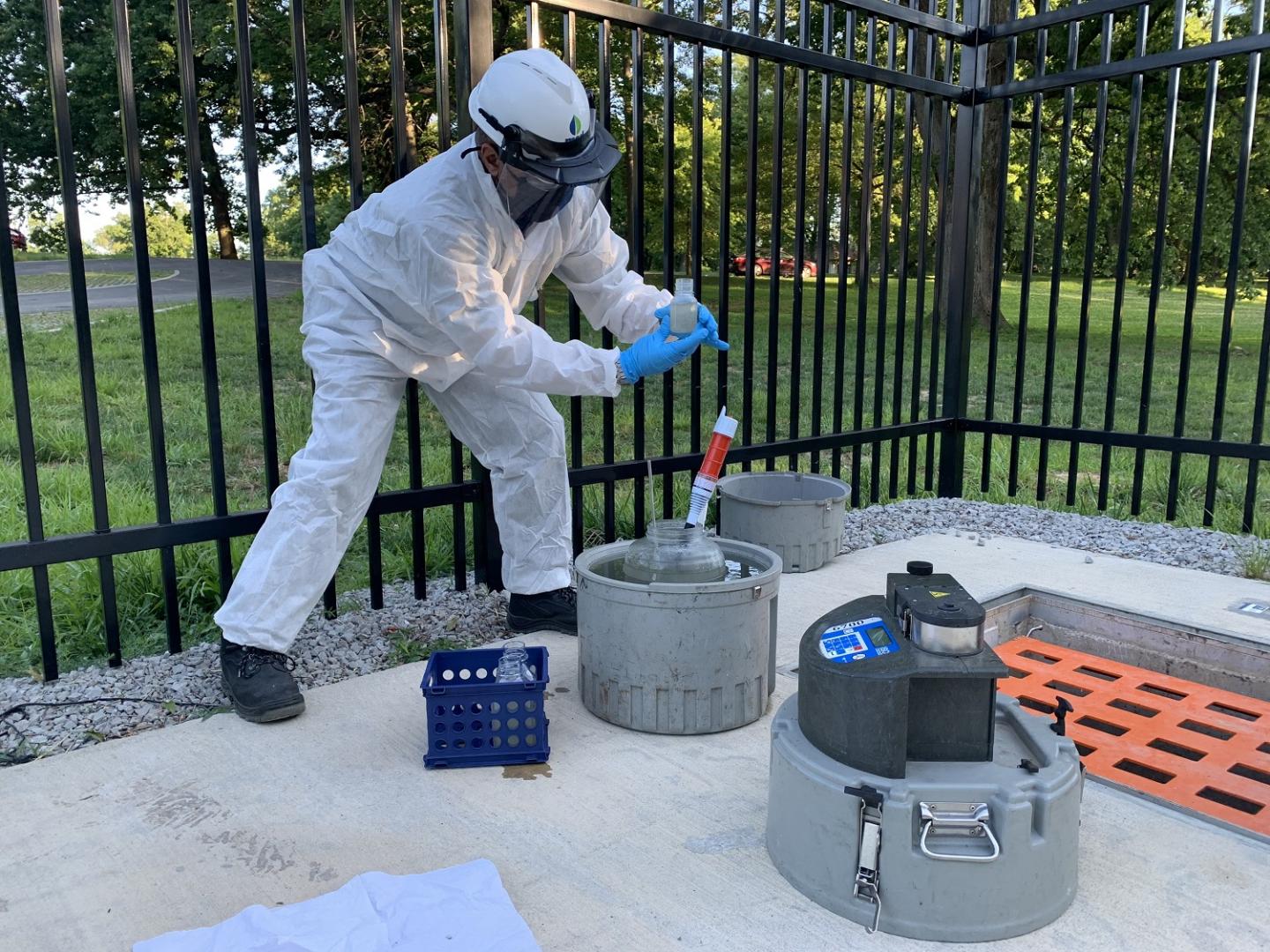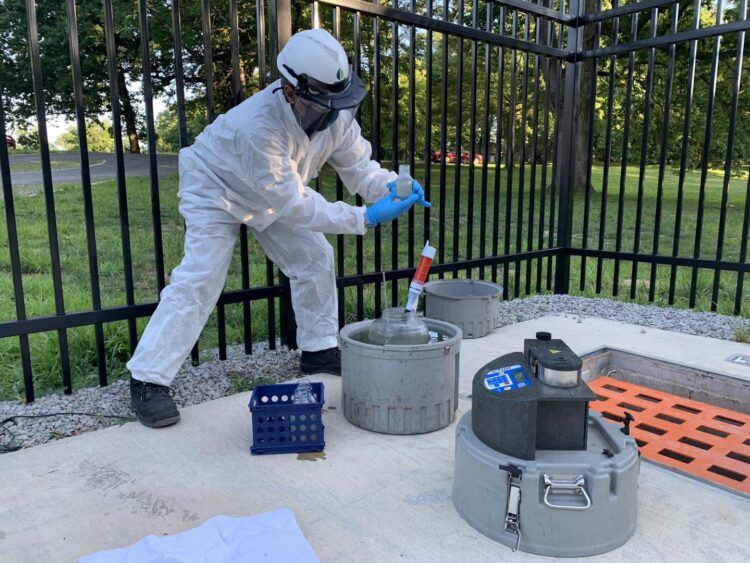Findings could lead to public health breakthrough for monitoring pandemics

Credit: Photo courtesy Louisville/Jefferson County Metropolitan Sewer District.
LOUISVILLE, Ky. – The University of Louisville has received $8.6 million from the U.S. Centers for Disease Control and Prevention (CDC) to back research that could help health departments use wastewater to monitor the rate of COVID-19 infection.
UofL researchers already are testing wastewater to determine whether coronavirus infection exists in different neighborhoods around Jefferson County. This new work goes one step further, with the goal of estimating how many people within those neighborhoods are infected. If virus levels are high in the wastewater, it may be a signal of widespread infection in the community.
“This could revolutionize the way we track and contain pandemics, and not just COVID-19,” said Aruni Bhatnagar, professor of medicine. “It gives us an invaluable tool that could offer a clearer view of where and how the virus spreads.”
Researchers at UofL’s Christina Lee Brown Envirome Institute, where Bhatnagar is director, began testing wastewater last year as part of the Co-Immunity Project, a groundbreaking partnership with the Louisville Healthcare CEO Council to track COVID-19 in Metro Louisville.
As part of that effort, the Louisville/Jefferson County Metropolitan Sewer District has sent weekly samples from 12 sites representing multiple neighborhoods and five water quality treatment centers that aggregate the entire county to the UofL Center for Predictive Medicine for virus analysis.
In this new work, MSD and other community partners will continue collecting wastewater samples over the next six months. After analysis, UofL will also send the results to the CDC’s National Wastewater Surveillance System, which will help inform efforts across the U.S.
As with previous rounds of COVID-19 testing conducted through the Co-Immunity Project, researchers will recruit participants by sending letters to selected households across Jefferson County. They hope to continue to enroll a few thousand people every month and will compare their COVID-19 infection and antibody results with wastewater samples from the same area, with the goal of finding how they correlate.
“The aim of the project is to figure out whether we can estimate how many people in a given area are infected by simply testing the community wastewater,” said Ted Smith, associate professor of medicine and a lead on the wastewater epidemiology project. “Additionally, this is a passive and comparatively low-cost way to monitor community infection and has the additional benefit of being inclusive of all communities in our city and is a promising step to ensuring public health equity.”
Since the beginning of the pandemic, the Co-Immunity Project has conducted ongoing testing and surveys to better understand the spread of the coronavirus and COVID-19. In the past year, UofL researchers have tested more than 12,000 people for COVID-19 infection and antibodies, beginning with frontline health care workers. They also have worked to gauge how local citizens feel about COVID-19 vaccines, with 91 percent of Jefferson County residents in a recent poll saying they would like to be vaccinated.
“This is critically important work in our fight against COVID-19,” said Kevin Gardner, UofL’s executive vice president for research and innovation. “Our hope is that by working with the CDC, we can develop these new, more efficient tools for tracking pandemics and take a big step in advancing health for all of our community.”
Last year, U.S. Senator Mitch McConnell (R-KY), then the Senate majority leader, negotiated and championed five historic and completely bipartisan COVID-19 rescue packages. In addition to supporting workers and propping up the economy, these relief bills also allocated $33.4 billion for COVID-19 testing. McConnell personally called then-U.S. Secretary of Health and Human Services Alex Azar to request that the CDC direct a portion of that funding to UofL’s Co-Immunity Project.
“Our country has responded to this terrible pandemic with innovation and discovery and Kentucky continues to play a major role in beating this virus. I’d like to congratulate Dr. Bhatnagar and UofL’s entire Co-Immunity Project on their groundbreaking study,” McConnell said. “After hearing about their work, I took this project to the highest levels of the federal government to help accelerate their research with additional federal funding. As UPS and other Louisville employers are sending safe and effective vaccinations around the country, I’m proud top researchers right here at UofL are pushing the boundaries of knowledge in detection and prevention.”
###
Media Contact
Betty L. Coffman
[email protected]
Original Source
http://www.





